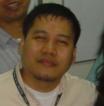
One of the six (6) Benildean Core Values is professional competence. It is not only the students who should be guided by the value inherent in being professionally competent as they are expected to uphold when they graduate, but also their teachers.
What does it make to be a professionally competent teacher?Based from the article,
“Competent Teachers” [compiled, adapted and produced by Roel J. Heinstra (translated by Joop Gankema & Doug Springate)], the following are the seven (7) competencies for education.
( http://www.cilo.europeesplatform.nl/content/disc5_competencies.pdf)1. Interpersonally competentA teacher who is interpersonally competent, is a good manager. Such a teacher creates a friendly and cooperative atmosphere and creates open communication. Such a teacher promotes the independence of the students and tries to reach a good balance between: (1) directing and accompanying, (2) leading the way and following, (3) confronting and reconciling, and (4) correcting and stimulating.
2. Pedagogically competentA teacher who is pedagogically competent gives the students something to hold on and also structure in a safe learning and work environment, to such an extent that the students can develop socially, emotionally and morally in a good way. Such a teacher ensures that the students: (1) know that they belong to the group, (2) are welcome and are appreciated, (3) respect each other and are challenged to take responsibility for each other, (4) can take initiatives and can work independently, (5) learn to discover their affinities and ambitions and that on this basis they can make choices with regard to their studies and careers.
3. Competent with subject matter (content) & methodologyA teacher who is competent with subject matter issues (content) & methodology , helps his students to make themselves familiar with the cultural baggage which is needed for every participant of our society in order to be able to function on a satisfactory level. Such a teacher: (1) tunes the subject matter content as well as his behavior to the students and takes individual differences into account, (2) decides together with the student his (individual) educational route, with for instance, opportunities for learning in and outside school and learning in the context of the professional practice, (3) motivates the students for their learning and work tasks, (4) challenges them to do their utmost and helps them to reach a successful conclusion, (5) teaches the students to learn and work, also from and with each other, in order to promote their independence or other objectives.
4. Organizationally competentThe teacher who is organizationally competent ensures that his students can work in an orderly and task-oriented environment. Such a teacher takes care that the students: (1) know what they can expect and how much freedom they have for personal initiatives and (2) know what they have to (or can) do, how and why they have to (or can) do this.
5. Competent in cooperating with colleaguesA teacher who is competent with respect to cooperation with his colleagues, supports a good pedagogic and teaching climate in his school, supports good mutual cooperation and a good school organization. This means that such a teacher: (1) communicates and cooperates well with colleagues and (2) is a constructive participant of meetings and other forms of school consultation and of the activities needed to ensure a well-functioning school and (3) supports the development and improvement of his school.
6. Competent with respect to cooperation with the environmentA teacher who is competent with respect to cooperation with the environment ensures that there is a good communication and harmony with the parents of the students, with companies or institutions the students are involved with (with respect to his education). He adequately uses the professional network of the school with respect to the education of the student or the care for the student. He handles the contacts he has on behalf of the school, with the environment of the school, with care and responsibility.
7. Competent with respect to reflection and developmentA teacher who is competent with respect to reflection and development regularly reflects about his professional views and his professional skills. Such a teacher tries to keep his professional activities up to date and to improve them. Such a teacher: (1) knows what he thinks is of importance for his teaching profession and what his basic values, standards and educational views are, (2) has a good perception of his own competences, his strong and weak points, (3) systematically tries to improve his own development, (4) tunes his own development to the policy of his school and uses the opportunities the school offers for further development.





